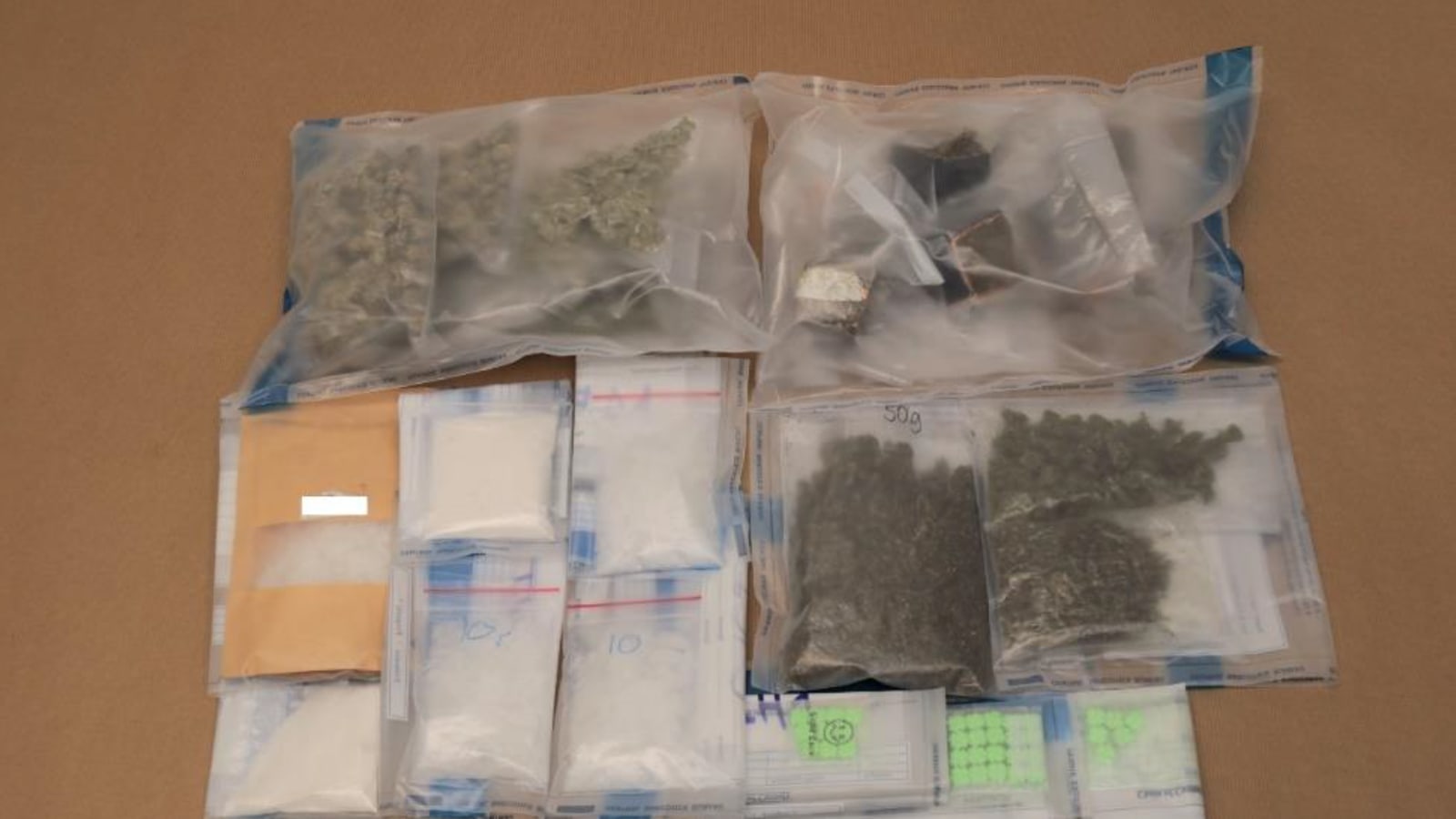
SINGAPORE: Parliament on Tuesday (Mar 21) passed amendments to Singapore’s drug laws that will levy harsher punishments on offenders who possess a large amount of certain Class A controlled drugs, such as cocaine or cannabis.
Another key change is the introduction of a legislative framework to combat new psychoactive substances – which produce the same or similar effects as controlled drugs – in a more effective fashion.
This means that such substances will be outlawed based on their capacity to produce a psychoactive effect, rather than their molecular structure.
Drug suppliers have been known to tailor the molecular structure of new psychoactive substances according to what is not yet controlled under the law, Minister of State for Home Affairs Muhammad Faishal Ibrahim told the House.
The two major amendments aim to address “emerging trends in the local drug situation”, including a rise in drug use among youths, added Associate Professor Faishal.
On Tuesday, seven other Members of Parliament rose to speak on the Misuse of Drugs (Amendment) Bill and the Constitution of the Republic of Singapore (Amendment) Bill, which were tabled in Parliament a month ago.
PSYCHOACTIVE SUBSTANCES
MP Zhulkarnain Abdul Rahim (PAP-Chua Chu Kang), as well as Derrick Goh and Louis Ng (PAP-Nee Soon), sought clarifications on invoking a defence for the legitimate use of psychoactive substances.
A suspect now bears the legal burden of proving they had a psychoactive substance for a legitimate purpose, other than for human consumption, on a balance of probabilities.
It is sufficient for the prosecution to prove that the substance is able to have a psychoactive effect on an individual, which is similar to statutory presumptions for controlled drugs.
Mr Ng asked what is needed to rebut “stacked” presumptions. This is when proof of a single element triggers multiple presumptions.
For example, someone is presumed to have possession of a psychoactive substance if they have keys to where the substance is found. In turn, the person will also be presumed to have known the substance can produce a psychoactive effect.
Mr Zhulkarnain asked what safeguards are in place to protect “innocent landlords or organisations running shelters” from being prosecuted.

In response to Mr Ng’s query on “stacked” presumptions, Assoc Prof Faishal noted that presumptions have been built into the Misuse of Drugs Act since it was introduced in 1973.
“Our long experience in dealing with drug trafficking syndicates is that without legal tools, such as presumptions, drug traffickers will be able to evade legal responsibility by simply saying that they did not know the drugs were there or they did not know what they were carrying,” he said.
He added that whether the presumptions can be rebutted “turns on whether the accused’s account is to be believed or not”.
Assoc Prof Faishal also said that landlords who rent to offenders “have nothing to fear if they have given the tenant exclusive possession of the property”. Landlords can also explain that they did not know of the psychoactive nature of a substance.
Ms Sylvia Lim (WP-Aljunied) asked if the authorities will list every new psychoactive substance of interest in the First Schedule of the Misuse of Drugs Act, given that the substance may eventually be found to have a legitimate use after industry consultations.
Assoc Prof Faishal said that the authorities “will have a robust and very careful analysis system”, and will not arrest anyone “if we have not got any confirmation”.
“We will look at the psychoactive effect from the scientific point of view and from the procedures involved to test the psychoactive effect.
“Once we do that, we will be able to investigate further and work with the industry before we carry out any action,” he added.
DRUG POSSESSION PENALTIES
In terms of increasing penalties for large-scale drug possession, Assoc Prof Faishal said that the current punishments are not differentiated by the type or quantity of controlled drugs involved.
Previously, the maximum punishment for possession of any controlled drug, regardless of weight, is 10 years’ jail or a fine of up to $20,000, or both.
Now, offenders can be caned depending on the amount of drugs they possess. Mandatory minimum sentences have also been set.
The eight controlled drugs that this will apply to are cannabis, cannabis mixture, cannabis resin, cocaine, diamorphine (pure heroin), methamphetamine, morphine and opium.
These “have the highest potential to cause serious harms in our local context”, said Assoc Prof Faishal.
Nevertheless, he said this does not affect MHA’s policy of sending drug abusers who only consumed drugs, but also face less severe drug-related offences like possessing small quantities of drugs, to the Drug Rehabilitation Centre rather than prison.

